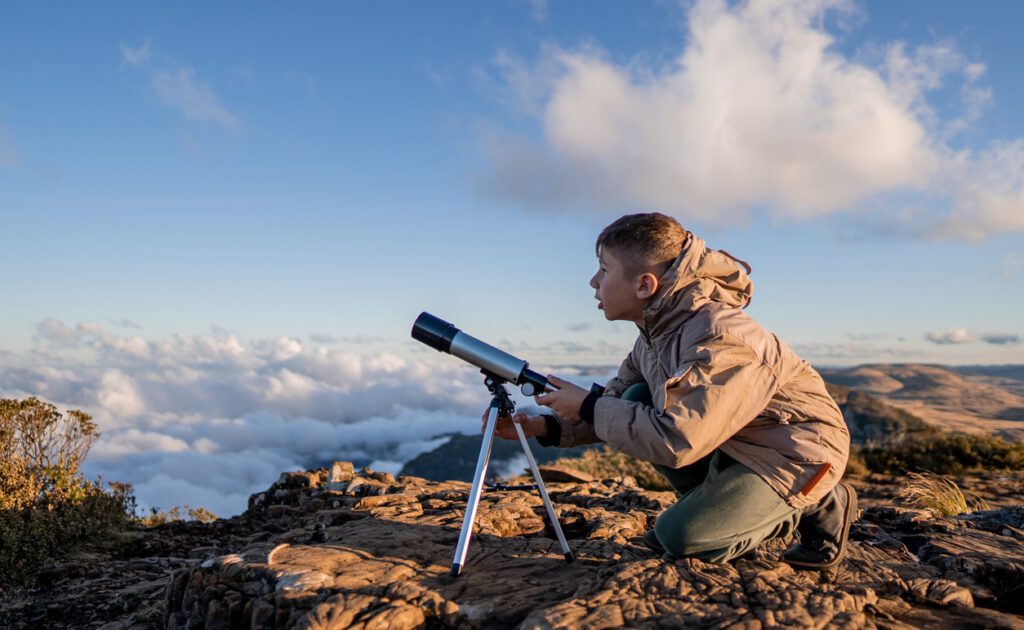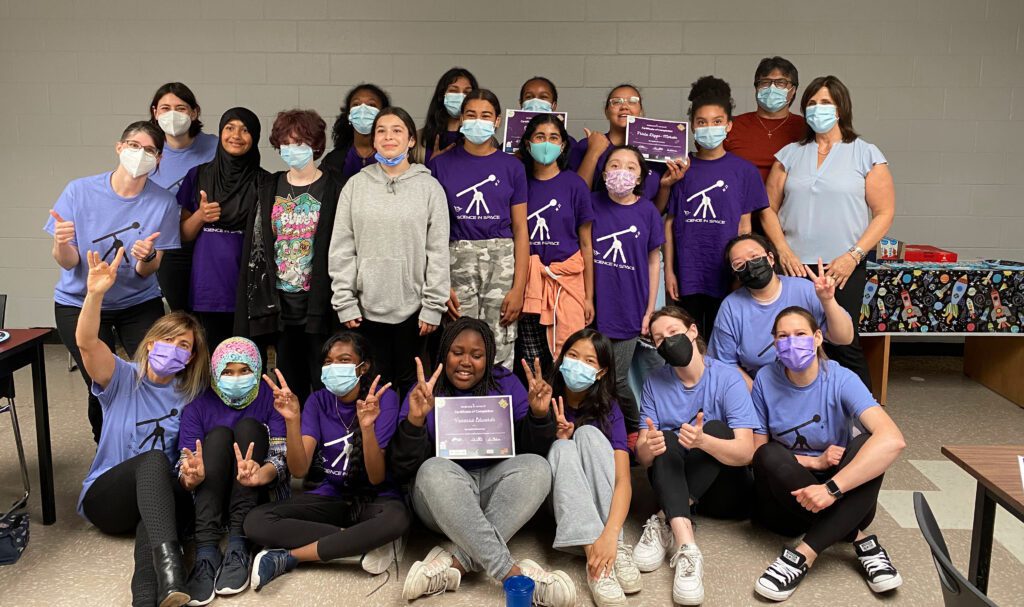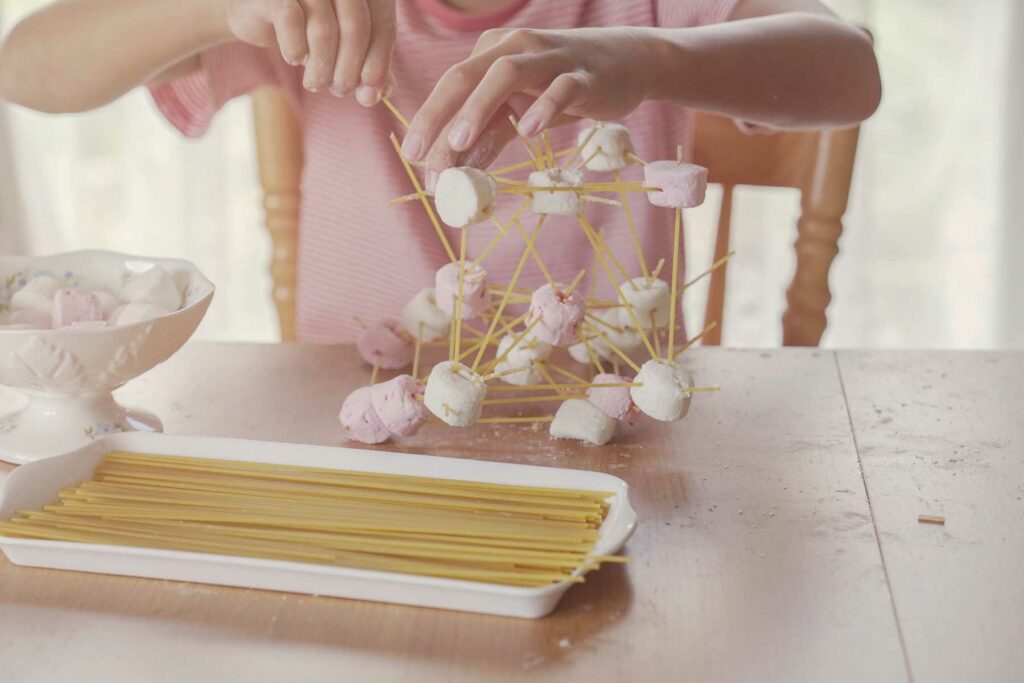
Bringing physics and space to life in Montreal classrooms
McGill Space Explorers student outreach program helps primary school kids delve into physics concepts like density and gravity through fun hands-on activities
Many McGill students fan out into the Montreal community for science education outreach, like the members of the Space Explorers program who bring their passion for physics and all things extraterrestrial to local elementary schools.
Through fun hands-on activities, students in Grades 4 and 5 learn about density, gravity, air resistance, and momentum, guided by their visitors from McGill’s Physics Department.
“The idea is to take these harder concepts that are relevant in physics and astrophysics, and then connect them back to our daily lives into things we can actually do and see,” explains Alice Curtin, a PhD candidate specializing in astrophysics at McGill and one of the coordinators of the outreach program.
McGill Physics students pair up in teams of two and visit the same elementary school classroom four times during the academic year for one-hour sessions.
In the first module, the students learn about density through testing the sink/float ability of objects in the classroom and then by building their own boats.

The gravity lesson revolves around the premise that a robber lurks nearby, and students need to figure out the best strategy for quickly stashing their different-sized “jewels” – marbles, in this instance – into a safe. They must drop the marbles one at a time through a hole. Turns out, it doesn’t matter which marbles you drop first, which surprises young kids. Even for adults sometimes “the idea that gravity affects everything equally is a really foreign concept,” Curtin says.
In the air resistance module, students build their own parachute from a plastic bag, tape, rope, and a marble. Maximizing the surface area of their parachute creates the most resistance and ensures a slower descent, but the McGill mentors don’t divulge that in advance. They let the students discover that through the experiment.

It's so exciting when you're working all day on hard theoretical problems, to then go back and see people getting excited about the general scientific ideas themselves. That can be a really nice refresher, and kind of remind you why you love doing it.”
Alice Curtin
Curtin enjoys talking about air resistance, noting that many of the kids ski or snowboard. “When you’re skiing, and you tuck down like a racer, you go much faster, and that has to do with air resistance. Less of your body is up against the particles that make up the air, and so you’re able to be more aerodynamic. And that’s a great example that kids have thought of.”
In the momentum lesson, students drop marbles into clay to mimic the formation of craters on the moon. “They love space. They love talking about it,” Curtin says. “When there’s time at the end of a visit, we give them time to ask us questions about that.”
The Space Explorers is one of the student-led initiatives under the umbrella of the McGill Physics Outreach team – and one of many science education outreach groups in the Faculty of Science. Some of these outreach activities, including at the Trottier Space Institute, the Redpath Museum and the Chemistry Department, are supported by donor funds.
In the past year, mentors from the Space Explorers program have visited 11 different classrooms in English and French schools in the Montreal area, reaching more than 200 elementary school kids. “The majority of that has been in person, which is really great after being virtual for so long,” Curtin says.
Shelly Sharp, a teacher at Coronation School in the Côte-des-Neiges district, says her students “respond enthusiastically and appreciate the attention and discussions.”
For her part, Sharp appreciates the visits for multiple reasons, including the fact that her students get excellent support during their inquiry. “I love bringing in young adults who demonstrate a passion for science. We are a multicultural community school and I see McGill students of many nationalities,” Sharp says.
Members of the Space Explorers “frame the activities with clear concepts,” adds Sharp, who says that has been a “wonderful strength” of the program.
The student group draws from a big pool of volunteers among McGill Physics students. What appeals to them about the science communications outreach?
“I think it’s the feedback we get from the students,” Curtin says. “It’s so exciting when you’re working all day on hard theoretical problems, to then go back and see people getting excited about the general scientific ideas themselves. That can be a really nice refresher, and kind of remind you why you love doing it.”

Curtin believes that physics is “assumed to be extremely difficult and a lot of times sort of intangible. And part of our hope with these experiments is to show students that physics is for everyone.” Research shows that the drop-off in participation in the discipline, especially among women and underrepresented genders, starts long before students get to college. Which is why they focused on the youngest ages with the Space Explorers program, she says.
Curtin also co-founded “Science in Space: How to Telescope”, a new women-led outreach collaboration between the McGill’s Physics Matters outreach group, the Trottier Space Institute at McGill, and Dell Technologies/Girls Who Game. The initiative began in the 2021-22 academic year with lunchtime visits to a school in the Montreal area. Over a 10-week period, the students from underrepresented genders in physics built telescopes in Minecraft.
The plan for the 2023 winter semester is to bring a solar telescope to the classroom for the lunchtime visits. “We also have infrared cameras that we can bring so they can look at things in the infrared to learn about wavelengths,” Curtin says. Twenty-three girls will be taking part, including many from the previous session.
“It was really great,” she says of the reaction to the initiative’s debut. “We had no attrition last year. All students who started, stayed – we had 17 girls. And the teachers were extremely enthusiastic. So, we’re coming right back this year.”